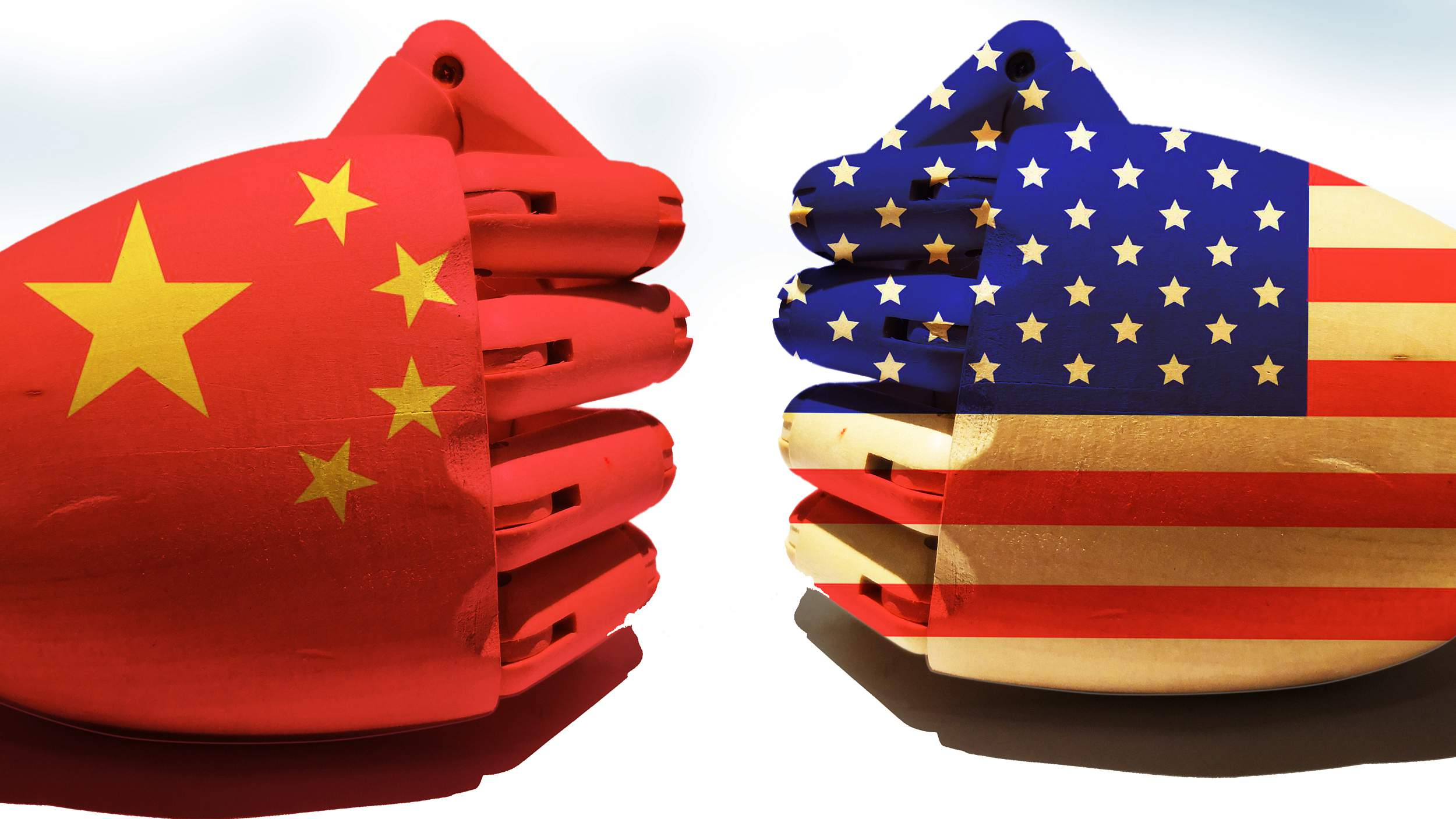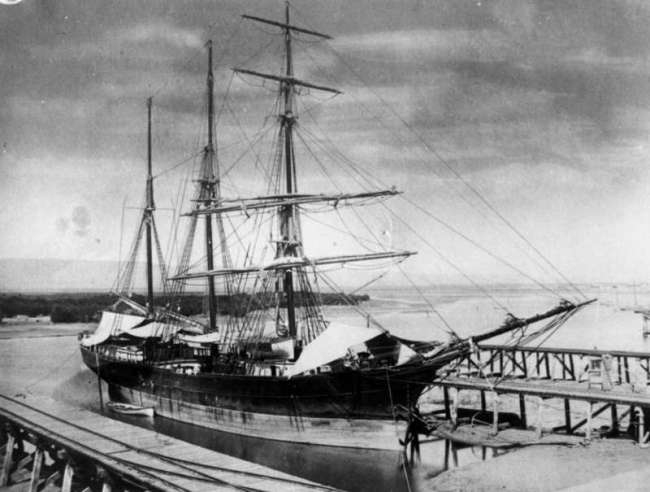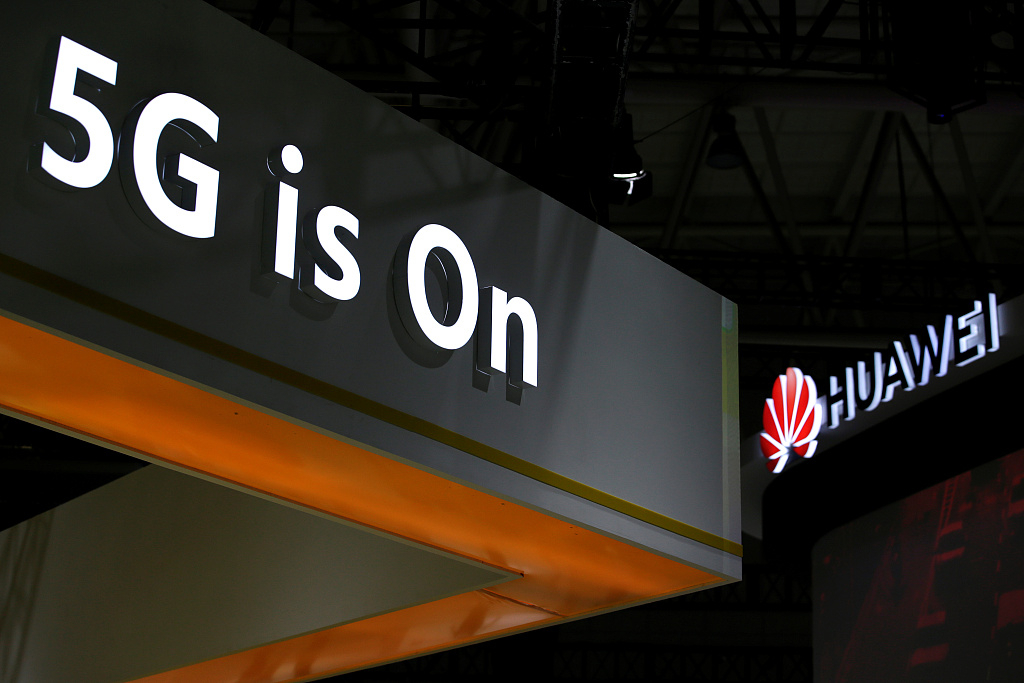

Editor's Note: The following article is taken from the Chinese-language "Commentaries on International Affairs" published on China Plus on June 24. The article reflects the author's opinion, and not necessarily the views of CGTN.
Since the escalation of Sino-U.S. economic and trade frictions, a small number of people spearheaded by U.S. Republican Senator Marco Rubio have taken the opportunity to hype the idea of China-U.S. "decoupling" and have called for the cutting-off of links between China and the U.S. in economy, trade, science and technology, and the humanities.
Those who hold this stance have clearly forgotten the history of the development of the United States and how their ancestors made their fortunes by relying on ocean going trade with China.
In order to break through the British economic blockade, the newly-independent United States dispatched a merchant vessel called the "Empress of China" on George Washington’s birthday, February 22, 1784, to China.
The American ship first crossed the North Atlantic Ocean, sailed around the Cape of Good Hope, across the Indian Ocean, entering the Pacific Ocean and the South China Sea, before finally arriving in Canton (modern day Guangzhou), China on August 28 of that year.
The historic voyage opened up the first direct trade route between the oldest and youngest countries on both sides of the Pacific Ocean.
During her stay in Canton of more than three months, the "Empress of China" merchant ship sold American ginseng, pepper, cotton, yarn, lead and other goods, and purchased Chinese products including tea, porcelain, silk, nankeen cotton cloth and cinnamon. The ship made more than 30,000 U.S. dollars in profit.

The United States merchant vessel the "Empress of China." /Photo: State Library of Queensland/Facebook
This voyage allowed Americans to appreciate the lucrative profits that could be enjoyed by trading with the distant Chinese market. As a result, thousands of sail boats competed and launched direct trade with China via a U.S. version of the Maritime Silk Road.
After the 1790s, the United States traded more with China than Denmark, France, Portugal and other established trading countries. U.S.-China trade ranked second, only behind UK-China trade which had lasted for more than 100 years.
At that time, the New York Post heralded the Empress of China’s maiden voyage a success and a first milestone in the history of American business, with Chinese goods becoming commodities in high demand in the U.S. market.
Even President George Washington himself was a loyal buyer of Chinese goods. He personally wrote a letter asking people to purchase Chinese porcelain plates, thin cotton cloth, silk handkerchiefs, etc.
Through the cloud of history, some have observed that the United States, 200 years ago, successfully broke through the British economic blockade and embarked on the road of development and prosperity through mutually beneficial trade with China.
Today, as the world's two largest economies, China and the United States have become each other's largest trading partners and important destinations for investment. In 2018, bilateral trade in goods reached 633.5 billion U.S. dollars.
About 14,000 people traveled between the two countries every day. The annual sales revenues of American companies in China exceeded 700 billion U.S. dollars, with profits exceeding 50 billion U.S. dollars.
It is hard to imagine that there could be any force that could decouple the mutually beneficial relationship between China and the United States, who have highly complementary and deeply integrated stakes in each other's future.
Recently, more than 600 U.S. companies, including Walmart and Target, sent a joint letter to the Trump administration calling for it to resolve the trade dispute with China, saying tariffs hurt American businesses and consumers.
At a hearing held by the U.S. side recently on imposing tariffs of 300 billion U.S. dollars' worth of Chinese exports to the United States, representatives of various enterprises and industry associations, including American apparel manufacturers and children's products manufacturers, voiced opposition to additional tariffs.
They hold the belief that Chinese goods are irreplaceable. The Chinese and American economies are closely linked. American manufacturers rely on the high standard and mass production of Chinese factories. If additional tariffs are imposed, American consumers will be the biggest victims.

A Huawei logo is seen at an exhibition during the World Intelligence Congress in Tianjin, China, May 16, 2019. /VCG Photo
Today, with a highly globalized economy, Sino-U.S. trade is not only related to bilateral interests, but also involves the global industrial chain, supply chain and value chain. Forcing China and the United States to "decouple" will inevitably disrupt the world economic chain and undermine the global industrial division of labor, causing chaos in the international market.
With this in mind, former U.S. Deputy Assistant Secretary of State Susan Shirk has warned that a decoupling of the U.S. and Chinese economies could be "apocalyptic."
It would be a huge mistake, which will cause great damage to the global economy, as the economic integration of the United States and China is an important cornerstone of globalization.
Given that Sino-U.S. trade is so great, friction is actually normal. The key is that both sides should find the right way to control differences and expand consensus. Looking back on the history of Sino-U.S. trade triggered by the voyage of the "Empress of China" more than 230 years ago, people must surely be aware that additional tariffs will not solve the problem, but instead will only exacerbate the tensions.
The so-called "decoupling" is an extremely dangerous and irresponsible argument. It will be in the interests of both nations to uphold mutual respect, equality and mutual benefit, and to rationally resolve trade differences.
It should not be forgotten that at a time when the United States faced an economic blockade and crossed the ocean in search of trade, it was the Chinese who came to their aid.
Today as China pushes forward with the "Belt and Road Initiative" which aims to promote global economic cooperation, some people in the United States seem to have forgotten where they came from and have vilified the China inspired initiative as an exclusive geographical club.
This situation recalls the words of the 19th Century economist Friedrich List, who regarded certain actions as akin to someone trying to kick away the ladder with which he had just climbed to the top.
No matter how some people in the United States try to hype the decoupling of China and the U.S., both history and reality have proved that cooperation is in the interests of both countries while confrontation likewise hurts both.
For the United States in the midst of a misguided strategic ambiguity, it is necessary to revisit the history of the origin of its commerce and trade. It is self-evident that "decoupling" from China amounts to "decoupling" from both opportunities and the future, in which case it could also be regarded as "decoupling" from the world.
(If you want to contribute and have specific expertise, please contact us at opinions@cgtn.com.)

Copyright © 2018 CGTN. Beijing ICP prepared NO.16065310-3
Copyright © 2018 CGTN. Beijing ICP prepared NO.16065310-3